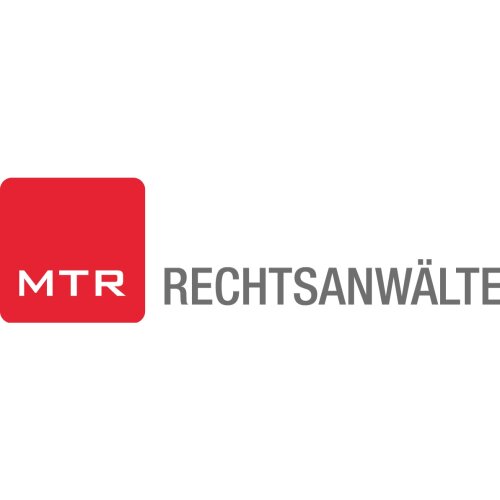Best Restructuring & Insolvency Lawyers in Berlin
Share your needs with us, get contacted by law firms.
Free. Takes 2 min.
List of the best lawyers in Berlin, Germany
About Restructuring & Insolvency Law in Berlin, Germany
Restructuring and insolvency law in Berlin, Germany, addresses the legal processes and measures available when businesses or individuals face financial distress or insolvency. This area of law is crucial for helping organizations and individuals navigate financial challenges, protect their interests, and, where possible, restore solvency or facilitate an orderly exit from the market. In Berlin, as across Germany, insolvency law is governed primarily by the German Insolvency Code (Insolvenzordnung - InsO), which sets out the procedures for insolvency proceedings, restructuring measures, and creditors' rights. Berlin, as the nation's capital and a lively business hub, has a well-developed legal infrastructure and specialized courts to handle such matters efficiently.
Why You May Need a Lawyer
Seeking legal advice in restructuring and insolvency situations is important for both business owners and individuals. Common scenarios where you might require a lawyer include:
- You or your company are unable to pay debts as they become due or are over-indebted.
- You want to explore options to avoid insolvency, such as restructuring or out-of-court settlements.
- Creditors are demanding payment, threatening legal action, or have filed for insolvency proceedings against you.
- You need to understand the potential personal liability of company directors and shareholders.
- You are a creditor seeking to recover debts from an insolvent debtor.
- You need guidance on filing or defending claims in insolvency proceedings.
- You require advice on restructuring agreements, asset protection, or liquidation.
- Your business seeks to continue operating during restructuring and needs advice on ongoing contractual obligations and employee matters.
Legal counsel ensures your interests are protected, compliance with statutory duties is maintained, unnecessary personal risk is avoided, and the chances of a successful turnaround are maximized.
Local Laws Overview
Restructuring and insolvency matters in Berlin are mainly covered by the German Insolvency Code (InsO). This includes:
- Insolvency Proceedings: Insolvency can be initiated voluntarily by the debtor or involuntarily by creditors. Once insolvency is declared, an insolvency administrator is appointed to manage the process. The proceedings aim to satisfy creditors as evenly as possible and determine whether the debtor's business can be restructured or must be liquidated.
- Preventive Restructuring: Since 2021, companies experiencing financial difficulty but not yet insolvent can consider preventive restructuring under the StaRUG (Business Stabilization and Restructuring Act), enabling out-of-court settlements and structured reorganization.
- Director’s Liability: Managing directors have strict obligations to file for insolvency promptly (usually within three weeks after an insolvency situation arises). Failure to do so can result in personal civil and criminal liability.
- Creditor Rights: Creditors in insolvency proceedings can file claims, participate in meetings, and, in some cases, influence the insolvency plan.
- Personal Insolvency: Individuals can apply for personal insolvency, which can ultimately lead to discharge of residual debts under certain conditions.
- Administration by Specialized Courts: The Berlin district courts (Amtsgerichte) are responsible for the administration and oversight of insolvency proceedings.
Understanding these processes and complying with strict legal deadlines is vital in Berlin’s legal environment.
Frequently Asked Questions
What is the difference between restructuring and insolvency?
Restructuring typically refers to measures taken to prevent insolvency by reorganizing debts, business operations, or company structure. Insolvency is a formal legal procedure triggered when a debtor cannot meet their obligations or is over-indebted.
When must a company file for insolvency in Germany?
A company must file for insolvency within three weeks of becoming insolvent or over-indebted. Failing to do so may result in personal liability for directors and potential criminal charges.
What happens to employees if their employer enters insolvency?
Employee contracts do not terminate automatically. The insolvency administrator may decide whether to maintain or terminate employment contracts. Employees may be eligible for insolvency wages (“Insolvenzgeld”) from the Federal Employment Agency for up to three months of unpaid wages.
Are directors liable for company debts during insolvency?
If directors fail in their duty to file for insolvency on time or breach other legal obligations, they can face personal liability for losses incurred after the company became insolvent.
Can creditors influence insolvency proceedings?
Yes, major creditors have the right to participate in creditors’ meetings, review the insolvency plan, and sometimes nominate the insolvency administrator.
Is it possible to keep the company running during insolvency?
Depending on the case, the insolvency administrator may allow the business to continue operations (“Insolvenz in Eigenverwaltung”), increasing the chances of restructuring and eventual recovery.
Can private individuals also file for insolvency?
Yes, individuals can file for personal insolvency, which may lead to a discharge of debts after a good conduct period, typically lasting three years if certain requirements are met.
How does preventive restructuring work?
Preventive restructuring under the StaRUG allows businesses to negotiate and implement restructuring measures before becoming insolvent, with or without some creditor support, and under court supervision if necessary.
What is the role of the insolvency administrator?
The insolvency administrator manages the debtor’s assets, examines claims, distributes assets to creditors, and may continue or wind up the business depending on the situation and legal requirements.
What documents are needed to start insolvency proceedings?
Typically, you will need financial statements, a list of creditors and debts, details of assets, employment contracts, and recent bank statements. Your lawyer will advise based on your specific case.
Additional Resources
If you need further assistance, consider contacting the following resources:
- Local Courts (Amtsgericht Berlin): Responsible for insolvency proceedings and inquiries.
- Federal Employment Agency (Bundesagentur für Arbeit): Provides information about insolvency wages for affected employees.
- Chamber of Industry and Commerce Berlin (IHK Berlin): Offers advice for businesses in distress.
- Registered Insolvency Administrators: Specialist lawyers and administrators are listed with local Bar Associations (Rechtsanwaltskammer Berlin).
- Consumer Advice Centers (Verbraucherzentrale Berlin): Assist private individuals with debt and insolvency issues.
- Professional Legal Associations: Such as the German Bar Association (Deutscher Anwaltverein) for finding qualified restructuring and insolvency lawyers.
Next Steps
If you believe you may need legal assistance with restructuring or insolvency issues in Berlin, consider the following steps:
- Gather and organize all relevant financial and legal documents, such as balance sheets, loan agreements, and contracts.
- Contact a qualified lawyer or insolvency expert specializing in German insolvency law as soon as possible to ensure deadlines are met and advice is tailored to your situation.
- Discuss your situation openly with your legal counsel to explore all possible options, such as out-of-court restructuring, preventive measures, or formal insolvency proceedings.
- If you are an employer, inform and support your employees as early as possible and seek advice regarding their rights and protections.
- Stay informed about your rights and obligations throughout the process by consulting reliable resources or authorities cited above.
Timely and informed action is critical to achieving the best outcome in restructuring and insolvency matters in Berlin. Seeking professional legal advice will help you make the right decisions and fulfill all regulatory requirements.
Lawzana helps you find the best lawyers and law firms in Berlin through a curated and pre-screened list of qualified legal professionals. Our platform offers rankings and detailed profiles of attorneys and law firms, allowing you to compare based on practice areas, including Restructuring & Insolvency, experience, and client feedback.
Each profile includes a description of the firm's areas of practice, client reviews, team members and partners, year of establishment, spoken languages, office locations, contact information, social media presence, and any published articles or resources. Most firms on our platform speak English and are experienced in both local and international legal matters.
Get a quote from top-rated law firms in Berlin, Germany — quickly, securely, and without unnecessary hassle.
Disclaimer:
The information provided on this page is for general informational purposes only and does not constitute legal advice. While we strive to ensure the accuracy and relevance of the content, legal information may change over time, and interpretations of the law can vary. You should always consult with a qualified legal professional for advice specific to your situation.
We disclaim all liability for actions taken or not taken based on the content of this page. If you believe any information is incorrect or outdated, please contact us, and we will review and update it where appropriate.
















